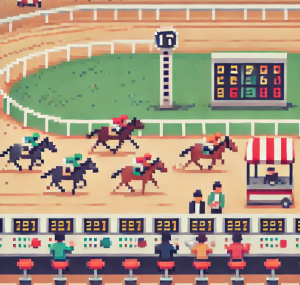
New Research Reveals 3 Keys to Preventing Teen Gambling
It starts earlier than you think. A splashy ad during a soccer match. A pop-up promising fast cash. A borrowed phone and a few taps later—boom, they’re in. The latest research out of South Korea uncovers an unsettling trend: a growing number of adolescents are gambling not just occasionally, but problematically. And the path to that point is more predictable—and preventable—than you might expect.
In a nationally representative study of 1,474 teens, researchers Hyun Jung Lee and Gyungjoo Lee mapped out the psychological journey many adolescents take from curiosity to compulsion. The findings, published in BMC Public Health, don’t just highlight a problem—they offer a roadmap to stopping it.
The Hidden Risk You’re Missing in Your Teen’s Phone
The numbers alone are eye-popping. While the percentage of Korean teens with a gambling problem has hovered around 0.8%, the share who’ve played money-based online games jumped from 8.2% in 2018 to 25.8% in 2022. Alarmingly, 6.5% of kids start gambling by age six.
But the real danger lies in what these early experiences do to the brain. Adolescents are wired for sensation. They crave thrill and novelty—but lack the impulse control and long-term thinking that come with a mature brain. That’s a dangerous match for gambling, which delivers instant excitement with just enough reward to keep you hooked.
How This Study Could Help Parents and Policymakers Break the Cycle
What makes this research powerful is its use of a structural equation model—a fancy way of mapping how different risk factors interact over time. Here’s what they found:
- Media exposure (especially through social media ads) and gambling access (legal or not) ramp up teens’ desire for thrills.
- That heightened sensation-seeking leads to distorted thinking—believing you can beat the odds or that gambling is a smart way to make money.
- These irrational gambling beliefs are the strongest predictor of full-blown gambling problems.
- Surprisingly, impulsivity—often blamed for risky behavior—was not a significant factor in developing these beliefs, though it was linked to media exposure.
In other words: the more a teen sees gambling and can access it, the more likely they are to chase the rush, believe the lies, and lose control.
New Research Reveals 3 Keys to Preventing Teen Gambling
- Limit Access
Teens who said it was easy to gamble—online or with friends—were far more likely to develop problems. This includes psychological access too, like growing up in a household where gambling is normalized. - Monitor Media Exposure
Gambling ads aren’t just showing up on TV anymore. Social media, streaming platforms, and even YouTube influencers are promoting sports betting and online casinos in ways that feel fun, friendly, and risk-free. - Target Irrational Beliefs
Programs that only focus on saying “don’t gamble” miss the point. What teens need is help identifying and challenging the false beliefs that drive gambling behavior—like thinking they have a system to win, or that past losses mean a win is “due.”
What You Thought You Knew… But Here’s What the Science Says
It’s easy to assume kids gamble for the same reasons adults do—stress, boredom, escape. And that’s partially true. But this study suggests something deeper: for teens, gambling taps into a developmental vulnerability. Their brains are hungry for stimulation and poor at evaluating risk. When you throw in nonstop exposure to gambling promotions and easy access to online platforms, you’re creating a perfect storm.
And unlike adults, kids don’t typically seek help until decades later—if ever. Some don’t realize the damage until their 40s.
What’s Next?
To truly tackle adolescent problem gambling, we need more than parental warnings and school posters. This study points toward system-level solutions:
- Policy change to regulate how and where gambling ads appear.
- Tech interventions to limit access and monitor behavior.
- Curriculum development to help teens recognize risky thinking and challenge their beliefs.
- Cross-sector collaboration among educators, healthcare providers, parents, and researchers.
And let’s not forget: early wins are dangerous. A single lucky streak can lock in false beliefs that take years to unlearn.
Join the Conversation
How does gambling show up in your community?
Are kids exposed to ads or access points you weren’t aware of?
What role should schools or tech companies play in prevention?
You’re Missing the Headlines That Matter
🚨 Critical science is unfolding—are you in the loop?
Each week, This Week in Public Health delivers need-to-know insights that shape policy, practice, and community health. If you’re not reading it, you’re already behind.👉 Subscribe for free now to stay ahead.
📢 Share this blog—someone you know needs to see it too.



